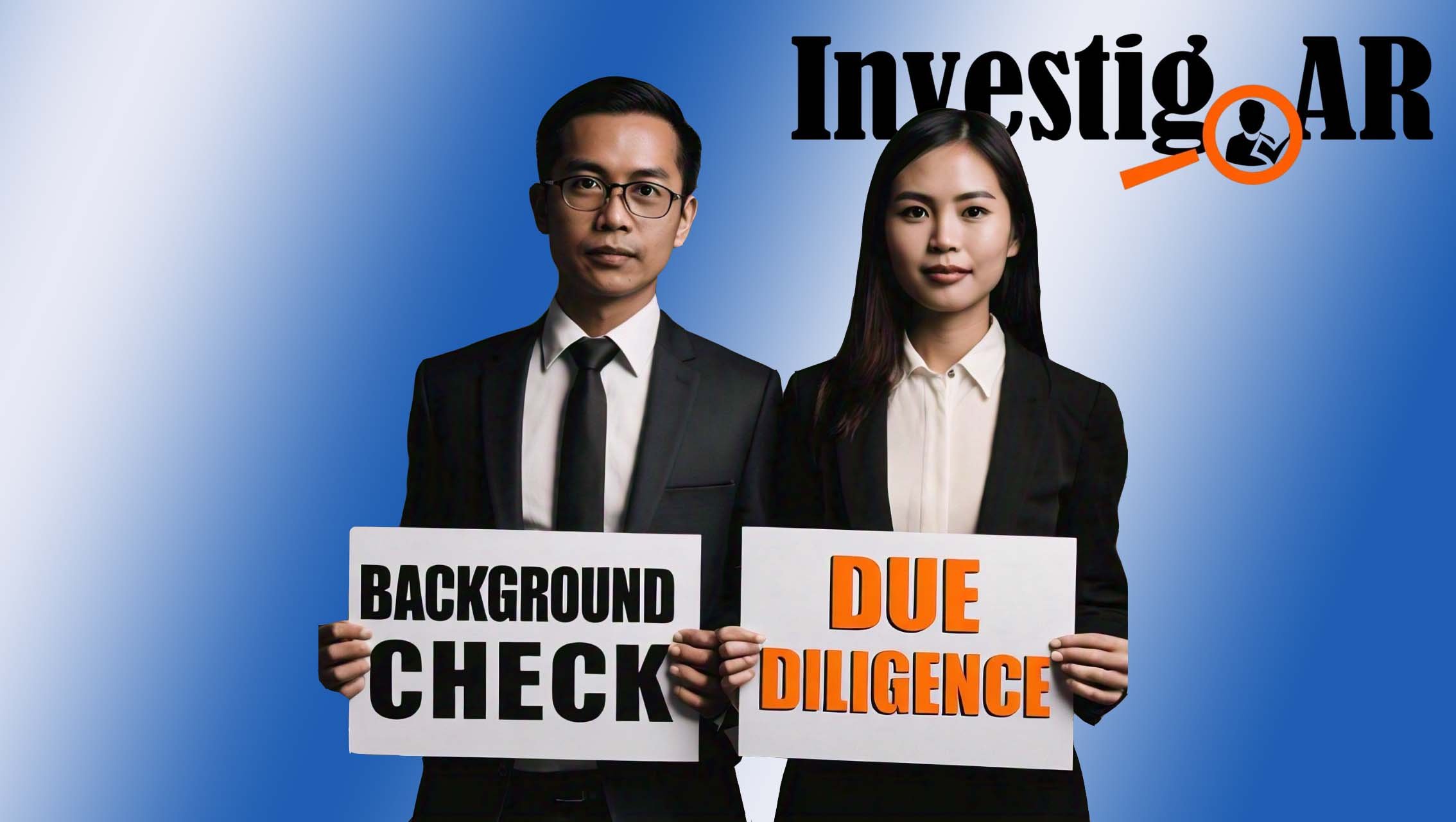¿Cuándo es necesario realizar un background check o un due diligence en una organización?
Aunque son términos que a menudo se confunden y utilizan de manera indistinta, los informes de background check y de due diligence son herramientas esenciales para la toma de decisiones en una organización. Pero ¿Cuándo es necesario solicitar uno u otro? ¿Cuáles son sus diferencias?
Informes de background check
El background check o la verificación de antecedentes se centra en personas físicas y jurídicas, siendo su objetivo validar la veracidad de la información proporcionada u obtenida. Esta información puede ser:
Historial laboral: Evaluar la experiencia y los empleos anteriores.
Educación: Verificar títulos universitarios y certificaciones.
Antecedentes judiciales: Asegurarse de que no existan registros judiciales, sobretodo, penales.
Situación económica y financiera: verificar las deudas que poseen en el sistema financiero
Referencias e información adversa: Comprobar la reputación y opiniones de terceros.
Este proceso es fundamental para la contratación de empleados, la selección de proveedores y la evaluación de socios comerciales, entre otros. Con la realización de un background check, es posible obtener información crítica que permita reducir riesgos y tomar decisiones con mayor certeza.
Pero entonces, ¿Qué es el Due Diligence?
Por otro lado, el due diligence es un proceso más amplio y exhaustivo, utilizado principalmente en transacciones comerciales importantes, como fusiones, adquisiciones o inversiones. Aquí, el objetivo es obtener una comprensión detallada de la situación de la empresa o individuo en varios aspectos, siendo algunos:
Financieros: Revisión de estados financieros, deudas y proyecciones.
Legales: Evaluación de contratos, litigios pendientes y licencias.
Operativos: Análisis de la estructura organizativa y gestión.
Comerciales: Investigación de la reputación pública y posibles riesgos.
El due diligence permite identificar tanto oportunidades como posibles amenazas antes de tomar decisiones estratégicas, asegurando que estés bien informado y preparado.
Podemos decir en resumen que sus diferencias radican en cuán exhaustivo es el análisis. Mientras que el background check realiza la verificación de antecedentes específicos sobre datos básicos, el due diligence realiza un análisis profundo en múltiples áreas sobre aspectos financieros, legales y operativas, entre otros, con el fin de comprender la situación de una entidad o individuo de manera íntegra antes de comprometer recursos significativos.
When is it necessary to perform a background check or due diligence in an organization?
Even though they’re often confused and used interchangeably, background checks and due diligence reports are key tools for making decisions in an organization. But when should you request one or the other, and what’s the difference?
Background Check Reports
A background check or background verification is basically an investigation into an individual or legal entity. The goal is to confirm the accuracy of the information provided or obtained. This info can be:
Work history and previous employment: to see what experience people investigated have.
Education: Make sure degrees and certifications from universities are legit.
Judicial record: It’s important to check for any criminal records, especially if there are any judicial records.
Economic and financial situation: Make sure you check the financial system for any outstanding debts.
References and adverse media: It’s a good idea to check out what other people and media think of them.
This is a key part of the hiring process, as well as selecting suppliers and evaluating business partners. A background check can help you get the info you need to reduce risks and make better decisions.
So, what exactly is due diligence?
On the other hand, due diligence is a broader and more thorough process, used mainly in important commercial transactions, such as mergers, acquisitions, or investments. The goal is to get a good grasp on the company or individual’s situation in a number of areas, including:
Finantial: We’ll go over the financial statements, debts, and projections.
Legal: We’ll look over contracts, pending litigation, and licenses.
Operational: We’ll also take a look at the company’s organizational structure and management style.
Commercial: Look into the company’s public reputation and any potential risks.
Due diligence helps you spot both opportunities and potential problems before making big decisions, so you’re well informed and prepared.
To put it simply, the main difference is how thorough the analysis is. A background check looks at specific data, but a due diligence review looks at lots of different areas, like financial and legal, as well as operations, to get a good understanding of a company or individual before you commit a lot of resources.








